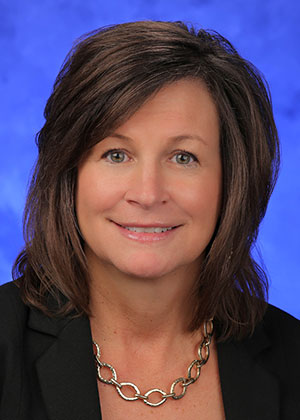Jump to topic
Program DetailsLearn More about the ResidencyCurriculum DetailsResident Honors and RecognitionsLatest News from NeurologySearch
Program Details
Thank you for your interest in the Penn State Neurology Residency Program! The program fosters a culture of clinical excellence, empowers residents as educators, promotes advancements in the field through scholarly endeavors and establishes the foundation for lifelong learning.
As aspiring neurologists, you play a pivotal role in shaping the future of healthcare. Here, you will embark on a transformative journey, honing your skills at the forefront of neurological care, while also embracing your role as mentors and educators of the next generation. The Neurology Residency Program’s commitment to research ensures that you will be equipped with the knowledge and tools to push the boundaries of neuroscience, driving innovation and advancing patient care. Within this program, you will find a supportive community that values you, your wellbeing and your professional development. Through a commitment to research, education and wellbeing, the program aims to empower you to thrive both professionally and personally, ensuring that you are equipped to make a lasting impact in the field of neurology.
The Neurology Department includes numerous faculty members representing all subspecialties in the field. Faculty members are nationally and internationally recognized for quality patient care, clinical teaching and research. The training curriculum is built around active patient-care experiences, the intellectual backbone of neurology. The high ratio (2:1) of attending teaching faculty to residents allows ample opportunity for one-on-one teaching. Attending physicians are always available to discuss patient-care issues and serve as guides in the process of resident education.
In terms of the structure of the department, there are programs in each of the following areas:
- Neuromuscular disease, including the ALS, Muscular Dystrophy Association (MDA) and pediatric MDA clinics, and an AGCME-approved Neuromuscular Medicine Fellowship
- Epilepsy and clinical neurophysiology, including a Level 4 Epilepsy Center and an ACGME-approved Clinical Neurophysiology Fellowship
- Stroke and vascular neurology, including a Joint Commission-certified Comprehensive Stroke Center and an ACGME-approved Vascular Neurology (Stroke) Fellowship
- Movement disorders (including the comprehensive movement disorders clinic)
- Multiple sclerosis and neuroimmunology (including the comprehensive multiple sclerosis clinic)
- Cognitive and behavioral neurology (neuropsychology)
- Headache
- General neurology
- Pediatric neurology (housed in the Department of Pediatrics)
- Neuro-ophthalmology (housed in the Department of Ophthalmology)
- Sleep neurology (in collaboration with the Division of Pulmonary and Critical Care Medicine in the Department of Medicine and the Department of Psychiatry and Behavioral Health)
- Neuro-oncology (in collaboration with the Department of Neurosurgery as part of Penn State Cancer Institute)
- Neurocritical care (in collaboration with the Department of Neurosurgery and the Department of Anesthesiology and Perioperative Medicine)
- Neurorehabilitation at Penn State Health Rehabilitation Hospital
- Pain medicine (in collaboration with the Department of Anesthesiology and Perioperative Medicine), including an ACGME-accredited Anesthesia/Pain Medicine Fellowship
- Neuropathology (housed in the Department of Pathology and Laboratory Medicine and Department of Neurosurgery)
- Neuroradiology (including an interventional neuroradiology program in collaboration with the Department of Radiology and Department of Neurosurgery)
Penn State Neurology Residency Program at a glance
- Five positions per year
- Four-year categorical program
- Integrated Internal Medicine internship, including a six-week dedicated Neurology block
- Night float system
- 4 + 2 schedule with dedicated time for the Resident Continuity Clinic
- Over eight months of flexible and elective time
- Research and Clinical Educator tracks
- Comprehensive didactics, including morning report, noon lectures, academic half day, journal club, board review, chair rounds, neurology grand rounds, etc.
- Training in EEG, EMG, Botox and other procedures as desired
- Commitment to quality, patient safety and multidisciplinary care
- Program, departmental and institutional commitment to nurturing a diverse and inclusive atmosphere
- Tertiary referral center for central Pennsylvania, serving rural and urban populations, and creating an ideal mix of “bread-and-butter” neurology and rare diseases
- Fantastic lifestyle in Hershey, Pennsylvania, with an affordable cost of living and easy access to amenities
- A close-knit, supportive group of residents and faculty invested in your success
- Graduates of our program will meet eligibility requirements for the American Board of Psychiatry and Neurology
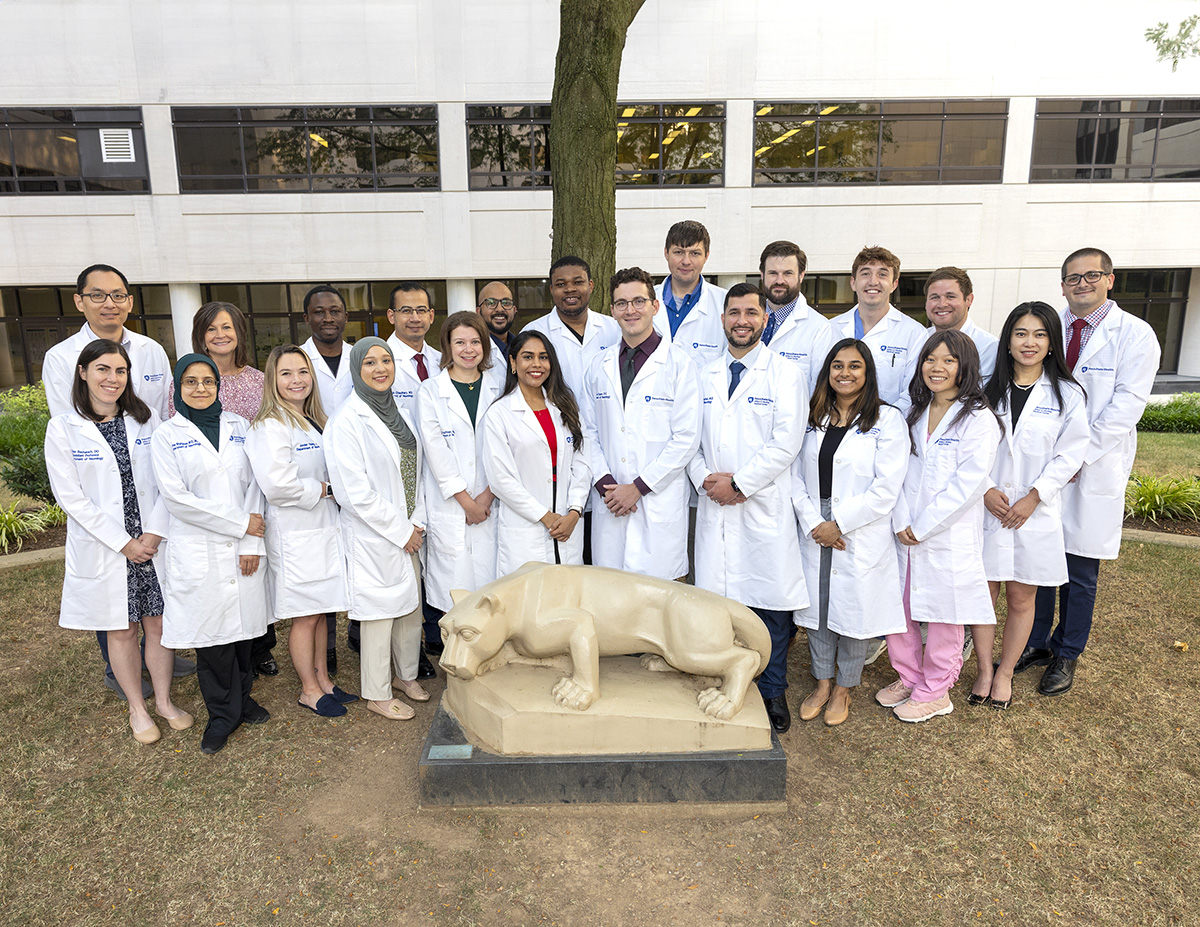
Leadership and trainees from the Neurology Residency are pictured, front row from left: Rae Bacharach, Shima Shahjouei, Jordan Yaukey, Aatqa Memon, Lydia Kauffman, Papul Chalia, Jacob Esper, Luis Navedo-Sanchez, Kalkini Durai, Yayoi Kumata and Mi Zhou. In the back row, from left, are Bill Su, Renee Choyce, Akintunde Adebowale, Durgesh Chaudhary, Brian Lee, Michael Nsaka, John Cavendish, Patrick Bergquist, Benjamin Ayer and Jacob Tremoulis.
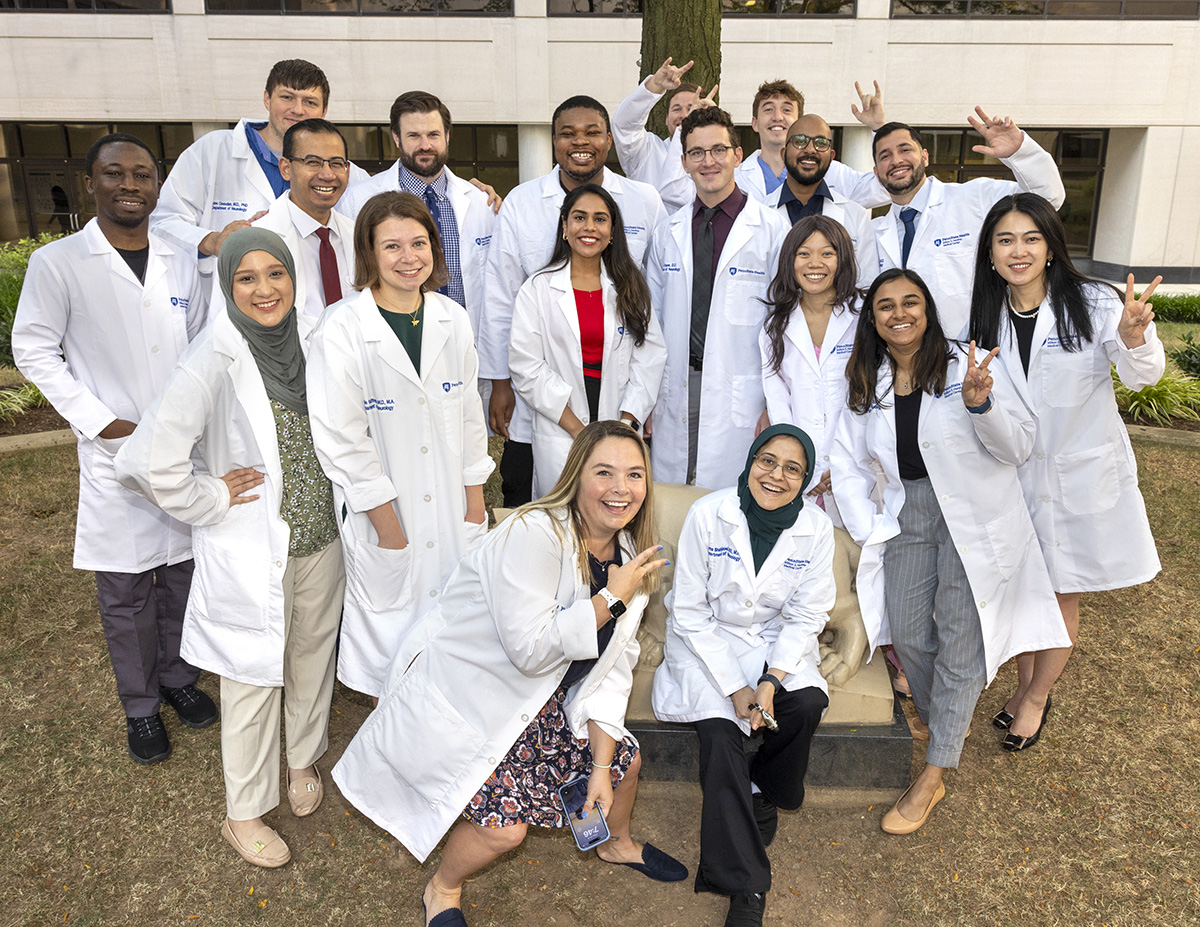
Residents in the Neurology Residency Program include, first row from left, Jordan Yaukey and Shima Shahjouei; second row from left, Aatqa Memon, Lydia Kauffman, Papul Chalia, Jacob Esper, Yayoi Kumata, Kalkini Durai and Mi Zhou; and back row from left, Akintunde Adebowale, John Cavendish, Durgesh Chaudhary, Patrick Bergquist, Michael Nsaka, Jacob Tremoulis, Jacob Esper, Benjamin Ayer, Brian Lee and Luis Navedo-Sanchez.
Learn More about the Residency
Welcome to the Neurology Residency! Under the leadership of our chair, Dr. Krishnankutty Sathian, the Department of Neurology at Penn State Health Milton S. Hershey Medical Center has enjoyed continued rapid growth over the past years. This is an exciting time!
Those who explore the program will notice the collegial environment. Faculty members are actively involved in teaching and work hard to balance the educational and personal goals of residents with the service requirements of the department. There are multiple faculty in each of the subspecialties of neurology, yet the group is small enough to remain close-knit so that residents are able to get to know each faculty member during their residency.
An advantage for the residency is that almost all required rotations are at Penn State Health Milton Hershey Medical Center. This is the only hospital that the residents cover when they are on call, and a night float system is in place. In the medical center, all neuroscience patient rooms, from the neuroscience integrated care unit to the epilepsy monitoring unit, are on the same floor as the resident workroom and call room.
The following are some highlights of the residency:
- Six-week “neurology immersion” curriculum for neurology interns: First-year neurology residents spend six weeks rotating in the neurology consult service, general service and stroke service, with goal to learn the neurologic exam and obtain exposure on localization skills and clinical skills. This experience has been praised by residents and helps ease the transition between Internal Medicine and Neurology.
- A dedicated longitudinal resident continuity clinic block rotation: Residents spend four half-days per week in resident clinic every five weeks. This rotation allows a much more realistic clinic schedule for the residents that mirrors an attending schedule; continued supervision by faculty; avoidance of unnecessary inpatient handoffs; and much more relaxed dedicated outpatient learning environment.
- The residency program can be individualized to meet each trainee’s goals:
- Integrated longitudinal Resident Research Track: Residents have the opportunity to apply for grants under the mentorship of NIH-funded researchers and participate in the Physician Scientist Training Program. Enrollment starts in early second year. Residents receive additional time and mentorship to support their research.
- Integrated longitudinal Clinician Educator Track: Residents interested in a career as a clinician educator, or who just want to improve their skills, may participate in this flexible track, which spans one or more years during training.
- More than 8 months of flexible and elective time: Residents have ample opportunity to explore their passions and strengthen their skills across the scope of neurology and related fields.
- Support for a wide variety of interests: The scope of experiences has led to our residents pursuing both general neurology and a wide variety of neurologic subspecialties—12 different subspecialties in the last four years, to be exact!
- A dual “resident-driven” and “department-driven” wellness program.
- An amazing group of residents and faculty to work with!
In conclusion, I want to thank you for the opportunity to present our residency program. I hope I’ve conveyed a sense of what a special place this is to be.
Rae Bacharach, DO
Director, Neurology Residency
Assistant Professor of Neurology
The mission of the Neurology Residency at Penn State Health Milton S. Hershey Medical Center is to cultivate neurologists who strive for excellence in patient care, research, education and community service to create leaders in the field of neurology, reduce healthcare disparities and improve the health of the community and beyond.
General Application Information
All applications must be received through the Electronic Residency Application Service (ERAS).
Application Requirements
The following items must be included in the ERAS application:
- Personal statement
- Medical school transcripts
- MSPE or dean’s letter
- Letters of recommendation (at least three letters from faculty, with at least one from a neurologist)
- USMLE and/or COMLEX transcripts
U.S. clinical experience is preferred, but not required.
This program is participating in the supplemental ERAS application program signaling process. Candidates with a strong interest in our residency program are highly encouraged to signal us because these applications will be prioritized.
Interview Process
The program will contact select candidates via email to schedule interviews. Interviews occur on selected Fridays between October and December. All interviews are conducted virtually.
All candidates need to be registered with the National Residency Matching Program (NRMP). No positions are offered outside the Match.
International Medical Graduates
The program accepts applications from international medical graduates. The application process is similar to the above; applicants must apply via ERAS and be registered with the NRMP.
Applicants must be either:
- A U.S. citizen
- A permanent resident (green card holder)
- The holder of a J-1 visa sponsored through ECFMG
The institution does not sponsor any other visas.
All international medical graduates must be certified by the ECFMG prior to the Match, but not necessarily prior to applying.
To be considered competitive for the program, international applicants should:
- Have passed USMLE Step 1 and 2. There is no specific cutoff for USMLE scores.
- Have U.S. clinical experience in the past two years, with a letter from a U.S. neurologist.
- Have graduated from medical school in the past five years.
- Be able to attain ECFMG certification as a part of their application.
We undertake a comprehensive, holistic approach to reviewing applications received from both U.S. and international candidates.
Virtual Tour
Penn State Health
Penn State Health is an integrated academic health system serving patients and communities across 15 counties in central Pennsylvania. It employs more than 20,900 people systemwide.
The system includes Penn State Health Milton S. Hershey Medical Center, Penn State Health Children’s Hospital and Penn State Cancer Institute based in Hershey, Pa.; Penn State Health Hampden Medical Center in Enola, Pa.; Penn State Health Holy Spirit Medical Center in Camp Hill, Pa.; Penn State Health Lancaster Medical Center in Lancaster, Pa.; Penn State Health St. Joseph Medical Center in Reading, Pa.; Pennsylvania Psychiatric Institute, a specialty provider of inpatient and outpatient behavioral health services, in Harrisburg, Pa.; and 2,417 physicians and direct care providers at 225 outpatient practices. Additionally, the system jointly operates various healthcare providers, including Penn State Health Rehabilitation Hospital, Hershey Outpatient Surgery Center and Hershey Endoscopy Center.
In 2017, Penn State Health partnered with Highmark Health to facilitate creation of a value-based, community care network in the region.
Penn State Health shares an integrated strategic plan and operations with Penn State College of Medicine, the University’s medical school. With campuses in State College and Hershey, Pa., the College of Medicine boasts a portfolio of more than $150 million in funded research and more than 1,700 students and trainees in medicine, nursing, other health professions and biomedical research.
Learn more about Penn State Health
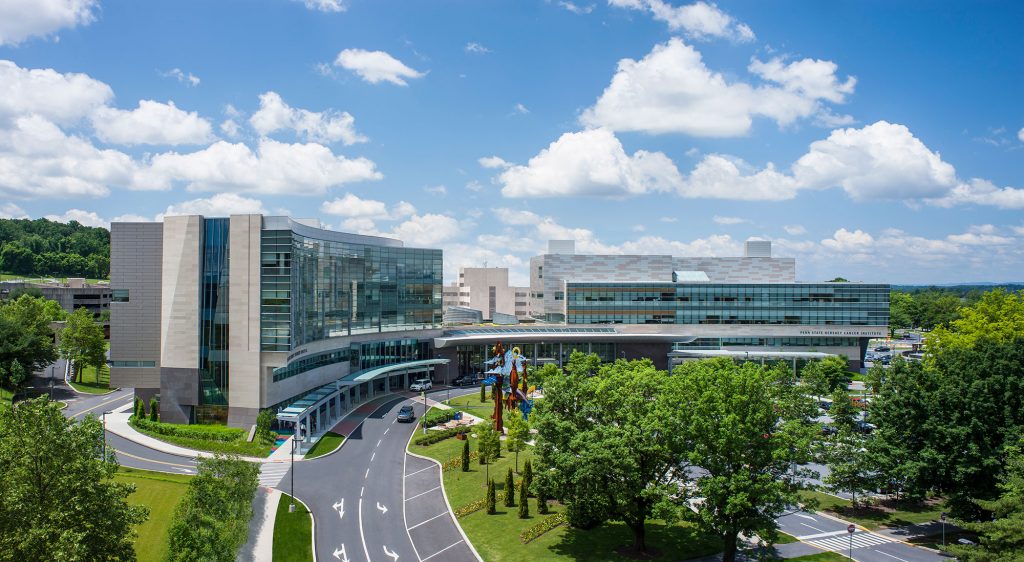
Penn State Health Children’s Hospital (left), Penn State Health Milton S. Hershey Medical Center (center) and Penn State Cancer Institute (right)
Penn State Health Milton S. Hershey Medical Center
500 University Dr., Hershey, Pa., 17033 (Derry Township, Dauphin County)
- The health system’s 611-bed flagship teaching and research hospital
- The only medical facility in Pennsylvania accredited as both an adult and a pediatric Level I (highest-level) trauma center
- Dedicated surgical, neuroscience, cardiovascular, trauma and medical intensive care units
- Accredited Life Lion critical-care transport providing more than 1,100 helicopter and approximately 750 ground ambulance transports per year
- More than 1,300 faculty members and more than 650 residents and fellows
- Approximately 29,000 admissions, 73,000 emergency department visits, 1.1 million outpatient visits and 33,000 surgical procedures annually
- Designated as a Magnet hospital since 2007
Learn more about Milton S. Hershey Medical Center
Penn State Health Children’s Hospital
600 University Dr., Hershey, Pa. 17033 (Derry Township, Dauphin County)
- An eight-story, 263,000-square-foot-facility built in 2013 and expanded in 2020
- 160 licensed pediatric beds, 26-bed pediatric intensive care unit and a 56-bed neonatal intensive care unit
- Level IV (highest-level) neonatal intensive care unit
- Level I quaternary (highest-level) pediatric intensive care unit
- Level I (highest-level) pediatric trauma center designation
- Intermediate care unit
- Dedicated pediatric operating rooms
- More than 150,000 pediatric outpatient visits, 20,000 pediatric emergency room visits, and approximately 5,000 pediatric patient discharges annually
Welcome to Hershey
More About Hershey
Interested in learning more about living and working in Hershey, Pa.? See details here:
Wellness, including emotional, spiritual, social and physical health, is a crucial component to training and to becoming a professional, compassionate and resilient physician. Self-care is a skill which must be continually practiced and reinforced. Penn State College of Medicine and Penn State Health are committed to addressing wellness among residents and fellows, with multiple resources readily available.
Institutional resources
- Visit BeWell – a health program designed to support Penn State Health employees
- See Penn State College of Medicine wellness resources here
- Employee Health Care Concierge and Case Management Service
- Partners in Medicine
Moving to a new city with your family does not have to be stressful. Residency programs have assisted many significant others with finding employment. There is also a GME-Wide Partners in Medicine (PIM) group that offers networking opportunities as well as various social and community oriented activities. - The Doctors Kienle Center for Humanistic Medicine
- Active and easily accessed Office of Professional Mental Health
Graduate medical education resources
Program Resources
The Neurology Residency program recognizes that the well-being of residents is paramount to their success and fulfillment. The program’s leadership is committed to fostering a supportive and nurturing environment. Through mentorship, peer support networks, comprehensive mental health resources, resident recognition programs and dedicated wellness initiatives, residents receive the tools and support necessary to thrive both personally and professionally.
Examples of recent resident-driven activities have recently included:
- Bowling
- Hershey Bears hockey game
- Going out to eat
- Holiday parties
- Birthday parties
- Coffee breaks
Examples of recent program activities have included:
- Annual resident retreat—cookout and kayaking on the Swatara creek
- Pumpkin carving
- Gingerbread house decorating competition
- Evening at Dave & Buster’s
- Neurology Department cookout
- Holiday party at the Hotel Hershey
- Annual resident welcome picnic
- Wellness bingo
Examples of recent institutional activities have included:
- Pet therapy, including dogs, kittens, goats, kangaroos, etc.
- Food truck festivals
- Live music
- Pop-up solace rooms
- Thank a Resident Day
- Donuts with the GME office
To foster peer support, the group has started a resident-to-resident mentorship program to facilitate academic success, professional growth and development. The program also developed a peer-to-peer “kudos” program, in which trainees praise each other anonymously and announce comments at monthly business meetings. The program also recognizes resident achievements and contributions through several award programs.
Institutional Resources
Penn State Health and Penn State College of Medicine celebrate, embrace and support the diversity of all patients, faculty, staff, students and trainees.
Office for Diversity, Equity and Inclusion
In keeping with this, Penn State Health has an active Office for Diversity, Equity and Inclusion with various programs, networks and resource groups, including:
- Talks and lectures on diversity, equity and inclusion through the Inclusion Academy
- Regular events on topics such as eradicating racism and creating a culture of inclusiveness
- Many Business Employee Resource Groups (BERGs), including:
- Disability Business Employee Resource Group
- Interfaith Business Employee Resource Group
- LGBTQ+ Business Employee Resource Group
- Military and Veterans Business Employee Resource Group
- Multicultural Business Employee Resource Group
- NextGen Business Employee Resource Group
- Black Physician Professional Staff Association – Resource Group
- Hispanic Professional Association
- Asian Physician and Professional Staff Association
- International Workforce Inclusion
- Inclusion Academy
Learn more about the Penn State Health Office for Diversity, Equity and Inclusion
Learn more about the College of Medicine’s Office for Diversity, Equity and Belonging
Office for Culturally Responsive Health Care Education
The vision at Penn State College of Medicine and Penn State Health is to equip learners with the knowledge, skills and attitudes they will need to provide culturally excellent health care and research for an increasingly diverse U.S. population. The Office for Culturally Responsive Health Care Education was formed to help meet that goal.
Learn more about the Office for Culturally Responsive Health Care Education
Office for a Respectful Learning Environment
In addition, the institution does not tolerate discrimination, biases, microaggression, harassment or learner mistreatment of any kind, and any concerns are immediately addressed by the Office for a Respectful Learning Environment.
Learn more about the Office for a Respectful Learning Environment
Network of Under-represented Residents and Fellows
The Network of Under-represented Residents and Fellows (NURF) is a group of diverse residents and fellows representing all specialties. NURF’s goal is to promote cultural diversity in the residency programs through community involvement, mentorship with diverse faculty, professional networking and support for the recruitment of diverse medical students into the residency programs.
NURF is sponsored by the Penn State College of Medicine Graduate Medical Education Office and the Penn State Health Office for Diversity, Equity and Inclusion.
Mailing Address
Department of Neurology, EC037
30 Hope Dr., Box 859
Hershey, PA 17033-0859
General Contact Information
Phone: 717-531-0003, ext. 283934
Fax: 717-531-0384
Curriculum Details
All residents must complete do the following during their training:
- Show consistent progress on all ACGME milestones and core competencies
- Complete a quality improvement project
- Participate and be productive in research/scholarly activity project
- Pass the annual RITE exam
- Complete faculty evaluations after every rotation
- Complete evaluations of rotations as indicated
- Take part in quarterly evaluation by office staff
- Pass ABPN clinical examinations (five by end of residency)
- Complete a biannual and end-of-residency evaluation of the program
- Participate in quarterly meetings with program director
- Complete and maintain case logs and procedure logs in New Innovations
- Attend 75 percent of required conferences: Morbidity and Mortality, Grand Rounds, neurology lectures, Friday neuroradiology lectures, neurology noon lectures and morning report
- Neurology noon lecture (12:10 p.m. Mondays through Thursdays)
- Neuroradiology/cerebrovascular conference (8 a.m. Fridays)
- Neurology Grand Rounds (noon Fridays)
- Morbidity and Mortality conferences (quarterly)
- Neuromuscular (EMG) quality conference (monthly)
- Epilepsy (EEG) quality conference
- Morning report (8 to 8:30 a.m. Mondays through Thursdays
Resident Honors and Recognitions
Penn State College of Medicine and Penn State Health Milton S. Hershey Medical Center accept ongoing nominations for the Exceptional Moments in Teaching award.
The award, given monthly by the Office for a Respectful Learning Environment, accepts nominations from College of Medicine students who are invited to submit narratives about faculty members, residents, fellows, nurses or any other educators who challenge them and provide an exceptional learning experience. See more about the award here.
Previous nominees from the Neurology Residency are listed here. Click the + next to a nominee name to read their nominator’s comments.
The annual Resident/Fellow Research Day is held each year (with exception of during the COVID-19 pandemic) on and around the Penn State Health Milton S. Hershey Medical Center campus.
The intent of the event is to provide an opportunity for residents and fellows to showcase their research accomplishments to their peers in other clinical departments, as well as their colleagues in the basic sciences.
Learn more about Resident/Fellow Research Day here.
Previous presentations from the Neurology Residency are listed here.
Previous oral and poster presentations from the Neurology Residency are listed here.
Previous awards from the Neurology Residency are listed here.
Latest News from Neurology
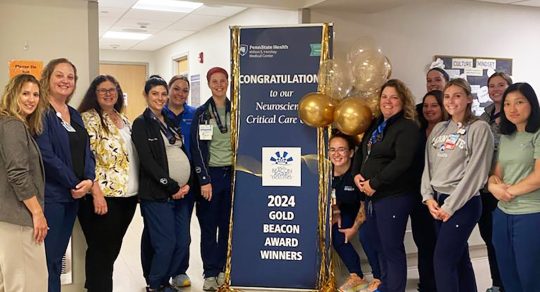
Sep. 6, 2024
Penn State Health Milton S. Hershey Medical Center Neuroscience Critical Care Unit earns gold-level Beacon Award for Excellence
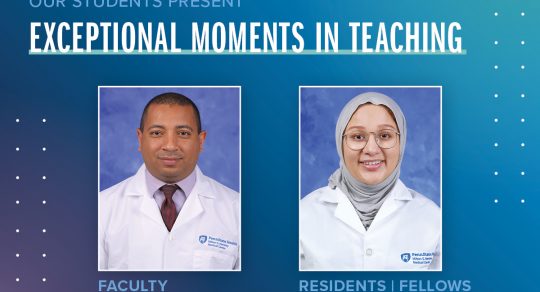
Aug. 8, 2024
Mahgoub and Memon recognized for Exceptional Moments in Teaching
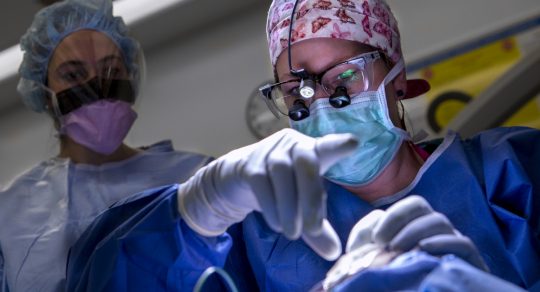
Jul. 17, 2024
Three Penn State Health hospitals named among nation’s best by U.S. News & World Report
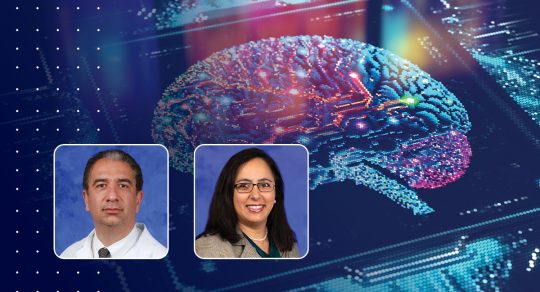
Jun. 20, 2024
College of Medicine leads NIH grant investigating the use of artificial intelligence to improve outcomes for stroke patients






